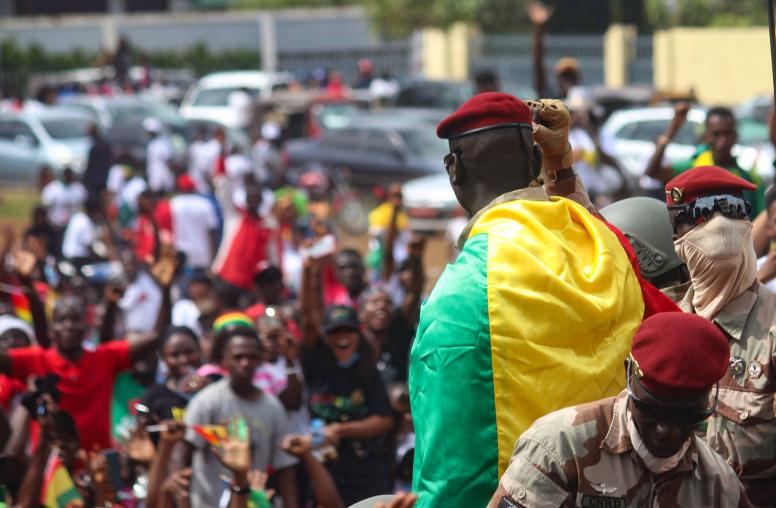Promoting Peace and Democracy after Nonviolent Action Campaigns
The ouster of Egyptian president Hosni Mubarak in February 2011 was brought about using the tools of nonviolent action, including massive protests and nationwide strikes. Yet the transition that followed showed that initiating change through nonviolent action is no guarantee of a peaceful, smooth path to democracy. This report, based on data on 72 political transitions that occurred between 1945 and 2019, provides key insights into the kinds of mobilization, in terms of tactics and actors, that tend to be most effective in carrying transitions to a democratic outcome.

Summary
Nonviolent action has been a potent force in initiating peaceful transitions away from authoritarian regimes and promoting democratization. Yet the initial breakthrough of a nonviolent action campaign is no guarantee of a future peaceful democracy. Political transitions following nonviolent action campaigns are fraught with challenges, particularly related to the need to continue civic mobilization to shape a transition’s trajectory and hold new elites accountable. Research to date has provided little systematic information on how civic mobilization evolves during these periods of political transition, or on how patterns of mobilization affect the possibility of democracy and the potential for transitional violence. This report describes and presents findings from one of the first data collection efforts aimed at filling this gap: the Civic Mobilization in Civil Resistance Transitions (CM-CRT) dataset. The dataset contains detailed information on roughly 1,600 mobilization events in 72 political transitions that took place between 1945 and 2019.
Analysis of these data help answer three key questions: first, what are the general patterns and trends of mobilization in transitions following nonviolent action campaigns? Second, which forms of mobilization impact the likelihood of democracy? Third, which forms of mobilization tend to lead to violence? The report finds that mobilization by workers during a transition has positive effects on the likelihood of post-transition democracy, and that events that involve violence or that have narrow, factionalizing goals have negative effects on post-transition democracy. Confrontational public tactics like marches, protests, and sit-ins are correlated with a risk of transitional violence, though much of this risk appears to be due to the increased probability of government repression.
The report concludes with recommendations for greater engagement with organized labor, and, when possible, security sector reform to reduce the likelihood of government repression. Training activists in nonviolent discipline may also be a fruitful avenue for reducing the likelihood of transitional violence.
About the Report
This report examines the dynamics of civic mobilization in political transitions initiated through major nonviolent action campaigns, with a particular focus on forms of mobilization that promote democracy and prevent breakdowns into violence. It is based on data in the Civic Mobilization in Civil Resistance Transitions (CM-CRT) dataset on 72 political transitions that occurred between 1945 and 2019. The research was supported by an interagency agreement between the United States Institute of Peace and USAID’s Center for Democracy, Human Rights, and Governance.
About the Author
Jonathan Pinckney is a senior researcher with the Program on Nonviolent Action at the United States Institute of Peace. He is the author of several USIP reports, journal articles, and the study From Dissent to Democracy: The Promise and Peril of Civil Resistance Transitions, which was published in 2020 by Oxford University Press.



